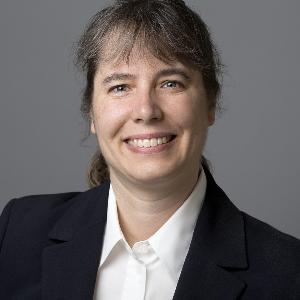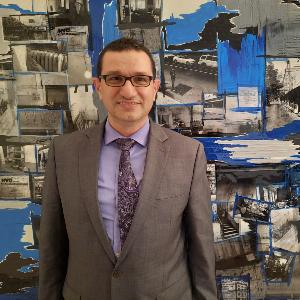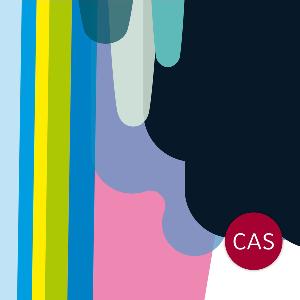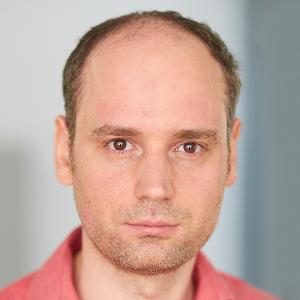
Next Generation AI
We currently witness the impressive success of artificial intelligence (AI) in real-world applications.
We currently witness the impressive success of artificial intelligence (AI) in real-world applications, ranging from autonomous driving over speech recognition to the health care sector. At the same time, modern, typically data-driven AI methods have a similarly strong impact on science such as astronomy, physics, medicine – as well as humanities or social sciences, often replacing classical methods in the state of the art. In fact, at present, basically any research area is already impacted or starting to get involved in research questions in the realm of AI. However, despite this outstanding success, most of the research on AI is empirically driven and not only is a comprehensive theoretical foundation -- in particular, in the sense of explanations of decisions -- missing, but even the limitations of these methods are far from being well understood. It is also far from clear how AI-based methods can be optimally combined with classical methods based on physical models as domain knowledge.
At present, two general streams of research in artificial intelligence can be identified worldwide. On the one hand, existing methodologies are adapted and applied to diverse scientific areas, while on the other hand, researchers aim to tackle the aforementioned methodological/theoretical problems and initiate the next generation of artificial intelligence. At LMU Munich, those directions are also prominently represented and displayed at https://www.lmu.de/ai. It is important to also stress that in fact both directions require a highly interdisciplinary effort and have many interconnections.
The CAS Research Focus therefore aims to connect, in particular, more methodological/theoretical with more application-oriented researchers across all faculties of LMU Munich as well as existing research and teaching activities, focusing on the following key problem complexes at the verge of the next generation of AI:
- AI and Uncertainty
- AI and Domain Knowledge
- Limitations of AI
- Social Aspects of AI (Explainability, Fairness, etc.)
Spokesperson

LMU Munich
Speaker of the CAS Research Focus “Next Generation AI”
Mathematical Foundations of Artificial Intelligence
Research Focus Group

LMU Munich
Spokesperson of the CAS Research Focus “Bureaucracy”
Organizational Economics

LMU Munich
Applied Statistics in Social Sciences, Economics and Business
Advisory Board
- Prof. Dr. Ruth Bielfeldt (Classical Archaeology, LMU)
- Prof. Dr. Christof Breitsameter (Moral Theology, LMU)
- Prof. Dr. Stefan Feuerriegel (AI in Management, LMU)
- Prof. Dr. Stephan Hartmann (Philosophy of Science, LMU)
- Prof. Dr. Heiner Igel (Geophysics, LMU)
- Prof. Dr. Michael Ingrisch (Clinical Data Science in Radiology, LMU University Hospital)
- Prof. Dr. Alexander Keller (Cellular and Organismic Networks, LMU)
- Prof. Dr. James Kirby (Spoken Language Processing, LMU)
- Prof. Dr. Hubertus Kohle (Art History, LMU)
- Prof. Dr. Frauke Kreuter (Statistics and Data Science in Social Sciences and the Humanities, LMU)
- Prof. Dr. Christian List (Mathematical Philosophy, LMU)
- Dr. Julian Müller (Sociology, LMU)
- Prof. Dr. Björn Ommer (Computer Vision & Learning, LMU)
- Prof. Dr. Monika Schnitzer (Comparative Economic Research, LMU)
- Prof. Dr. Jochen Weller (Physical Cosmology, LMU)
- Prof. Dr. Mark A. Zöller (Law, LMU)
Visiting Fellows

University of Vienna
Visiting Fellow, CAS Research Focus "Next Generation AI"
Mathematical Data Science

NYU Wagner Graduate School of Public Service
Visiting Fellow, CAS Research Focus "Next Generation AI"
Economics and Statistics

Moffitt Cancer Center in Tampa
Visiting Fellow, CAS Research Focus “Next Generation AI”
Bioinformatics
Lecture Series "Next Generation AI"
-
 25 Oct—06 Feb
25 Oct—06 Feb
Events
- Lecture by Prof. Michael I. Jordan, Ph.D. – "On the Blending of Machine Learning and Economics"
(Winter Semester 2021/22) - Panel Discussion with Prof. Dr. Sami Haddadin, Prof. Dr. Gitta Kutyniok and Eva Wolfangel – "Next Generation AI"
(Winter Semester 2021/22) - Roundtable – "Next Generation AI" Topic I: AI and Uncertainty"
(Winter Semester 2021/22) - Roundtable – "Next Generation AI" Topic II: AI and Domain Knowledge" (Winter Semester 2021/22)
- Roundtable – "Next Generation AI" Topic III: Limitations of AI"
(Winter Semester 2021/22) - Roundtable – "Topic IV: Social Aspects of AI"
(Winter Semester 2021/22) - Symposium on AI Research at LMU
(Summer Semester 2022) - Lecture by Prof. Dr. Joachim M. Buhmann - "Algorithm Validation for Data Science" (Summer Semester 2022)
- Workshop – "AI in Science: Foundations and Applications"
(Summer Semester 2022) - Lecture by Prof. Issam El Naqa, Ph.D. and Prof. Julia Lane, Ph.D. - "Perils and Pitfalls of AI in Radiological Sciences"
(Winter Semester 2022/23) - Lecture by Prof. Håvard Hegre, Ph.D. – "Accounting for Uncertainty when Forecasting Armed Conflict"
(Summer Semester 2023) - Lunch Talk by Prof. Dr. Philipp Grohs – "Opportunities and Limitations for Deep Learning in the Sciences"
(Summer Semester 2023) - Panel discussion with Dr Thiemo Fieger, Prof. Dr Björn Ommer, Martin Skultety and Christian Schiffer – "Generative AI in the Industry, Media, and Beyond. Chances and Challenges of Stable Diffusion"
(Summer Semester 2023) -
Lecture by Prof. Yann LeCun, Ph.D. – "From Machine Learning to Autonomous Intelligence"
(Summer Semester 2023)
Link to the video - Workshop led by Prof. Dr Eyke Hüllermeier, Prof. Dr. Göran Kauermann and Prof. Dr. Hinrich Schütze – "AI Double Feature: Neuro-Symbolic AI / AI and Sustainability"
(Summer Semester 2023)





